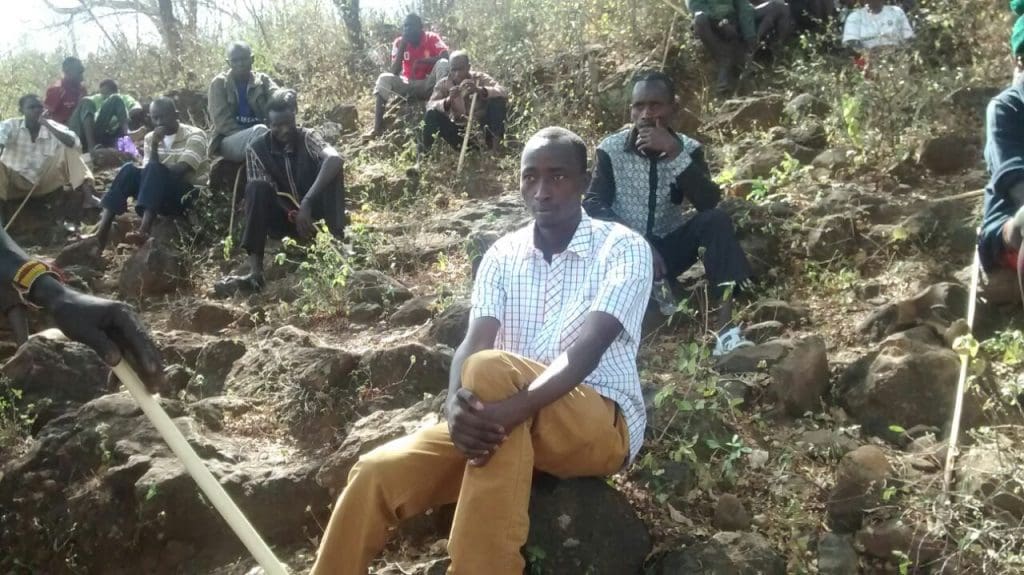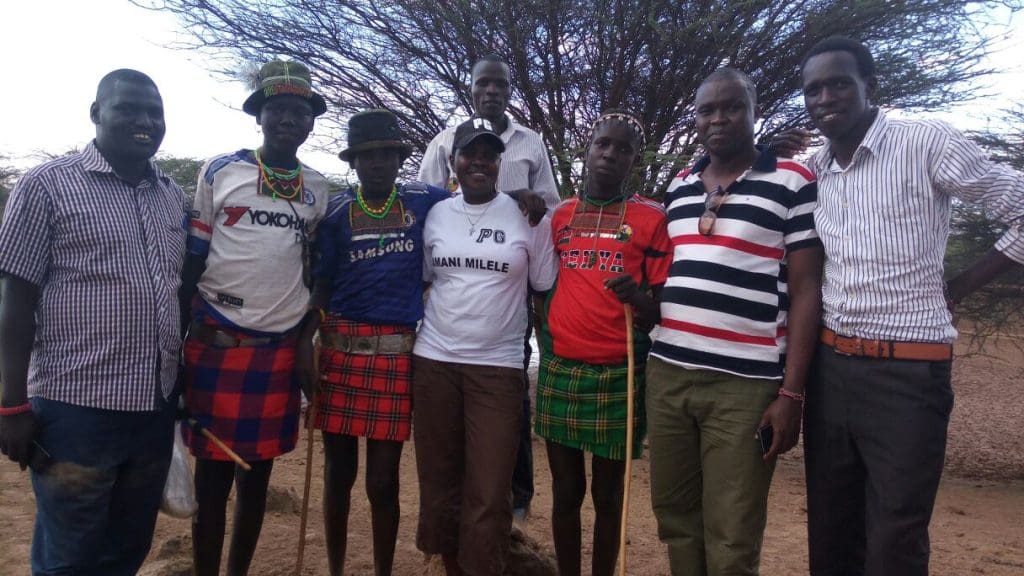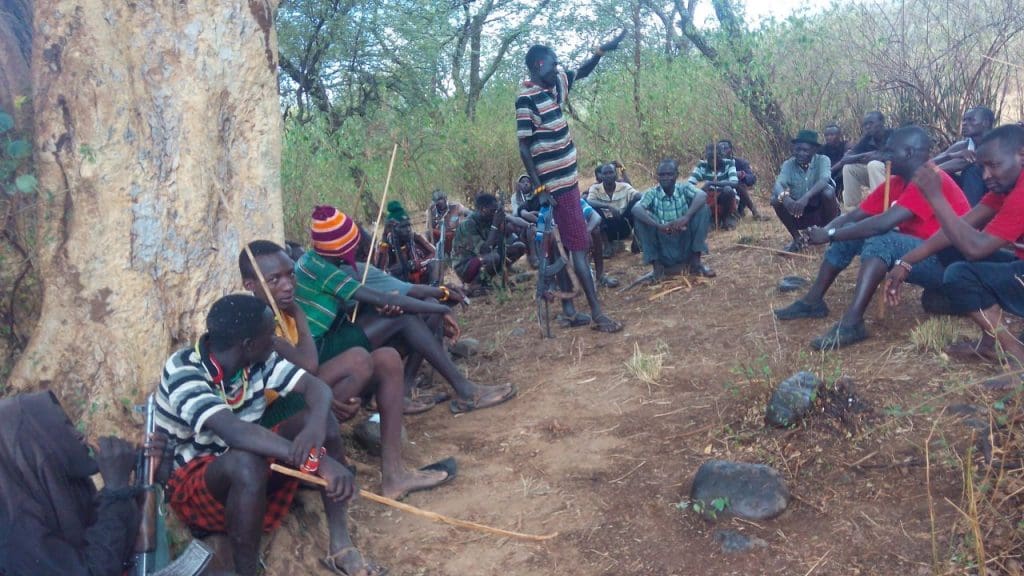Project Highlight: The Kenya Initiative – Building Local Mediation Capacity for Peace
By Florence de Vesvrotte, MBBI Writer
 Have you ever wondered how the magic of mediation operates in the most challenging of contexts? If yes, then a chat with MBBI’s Kenya Initiative Team Leader, Gail Ervin, is what you need. In an interview, Gail patiently explained to me how the MBBI team helps foster peace through dialogue in rural pastoralist (nomadic herder) areas of Kenya, an account which elucidated the benefits of mediation.
Have you ever wondered how the magic of mediation operates in the most challenging of contexts? If yes, then a chat with MBBI’s Kenya Initiative Team Leader, Gail Ervin, is what you need. In an interview, Gail patiently explained to me how the MBBI team helps foster peace through dialogue in rural pastoralist (nomadic herder) areas of Kenya, an account which elucidated the benefits of mediation.
The Concept of Dialogue: Returning to the Basics of Community Building to solve a National crisis
Dialogue helps individuals understand each other all around the world— communities regularly and naturally return to this basic technique to solve their conflicts. I use the term ‘return to’ because, fundamentally, dialogue is a tool that keeps being put aside as societies grow— until a crisis re-arises and forces citizens to reconsider the idea of engaging peacefully with each other. Repeatedly, one attempts to go back to a culture of dialogue and cooperation, each time hoping it will last permanently.
Speaking with Gail only confirmed that MBBI understands this; her experience in Kenya is a good illustration of how MBBI helps empower sustainable ways to engage with one-another in communities.
Bringing MBBI to Kenya
 During 2007–2008, Kenya suffered a political, economic, and humanitarian crisis after incumbent President Mwai Kibaki’s election was widely contested. Thousands of people died and ended up being displaced—while communities around Kenya looked for solutions to restore stability in their country. Election violence exacerbated traditional inter-ethnic violence.
During 2007–2008, Kenya suffered a political, economic, and humanitarian crisis after incumbent President Mwai Kibaki’s election was widely contested. Thousands of people died and ended up being displaced—while communities around Kenya looked for solutions to restore stability in their country. Election violence exacerbated traditional inter-ethnic violence.
During this time, some pastoralists living in larger cities (called “Professionals”) returned to their communities to forge dialogue and question inhabitants about the violence. Soon, the Laikipia Peace Caravan was created to respond to the crisis. This initiative, entirely supported by Kenyans– without external financial or material support– brought about fantastic inter-ethnic cooperation and inclusion. This lead to peace at the local level in just a few months—which has been sustained to this day.
In the same year, a member of this movement, Lantano Nabaala, got in touch with MBBI. Aware of our focus, Lantano was looking for support in transforming these temporary movements into a sustainable culture of dialogue and preventing future conflicts.
How MBBI could Support Kenya’s Peacebuilding Process
In 2012, MBBI created the Kenya Initiative and sent in a team for an initial assessment of the situation in the country. As a part of ongoing support and learning, MBBI members subsequently participated with a dozen Professionals in a participatory action research project in 2014 that researched what made the Laikipia Peace Caravan effective and sustainable.

As a part of this, the team developed a new project concept, the Warriors to Peace Guardians Framework. The first initiative of this approach in Baringo County was funded by the United States Institute for Peace, and trained trainers and 63 “Peace Guardians” who now support their communities in inter-ethnic dialogue and cooperation.
The framework is a systemic approach to peacebuilding intended to leave local partners with an extensive network of local Peace Guardians empowered to resolve their own conflicts and sustain their peace. Tiered conflict resolution occurs when MBBI trains and mentors the Professionals and the trainers go on to train Peace Guardians on the ground. MBBI’s training of trainers supports inter-ethnic and inclusive dialogue, as well as cooperation on the rural village level. As Peace Guardians and their communities self-organize for inter-ethnic cooperation and development, resilience against the threat of violent conflict is strengthened. This security leads to positive peace as markets, roads and schools reopen. To this day, these local Peace Guardians, in partnership with the government, continue to transfer their knowledge and skills to schools, markets, and other sectors— spreading a culture of dialogue and peacebuilding in self-ownership.
How Local Peacebuilding Can Lead to National Stability and Democracy
There is an undisputed advantage to supporting true insiders, facilitating local strengths and letting locals lead their own processes. This approach functions outside of what can be framed as the ‘peace industry’ that exists in many conflict-affected states that the international community is trying to help. There is no question that self-organised villagers, eager to solve their own problems, will deliver far better results for themselves than anyone external to the community or motivated for other reasons than a personal need for peace.
This type of participatory citizenship triggers more engagement with local, regional and national political systems, as seen in the recent Baringo initiative. The Warriors to Peace Guardians Framework intends now to create a multi-county network of Peace Guardians committed to ensuring inter-ethnic cooperation and dialogue.
Next for Kenya …
Speaking to Gail made it abundantly clear that MBBI’s help for communities, in this type of context, places the focus on remote communities becoming self-reliant in building and sustaining their own peace. The team is now currently evaluating what worked in Baringo and how that further informs implementation of the framework, and hopefully, other organisations eager to empower grassroots efforts who will continue to support our work.
To learn more about the Kenya Initiative or support their work, click here.
